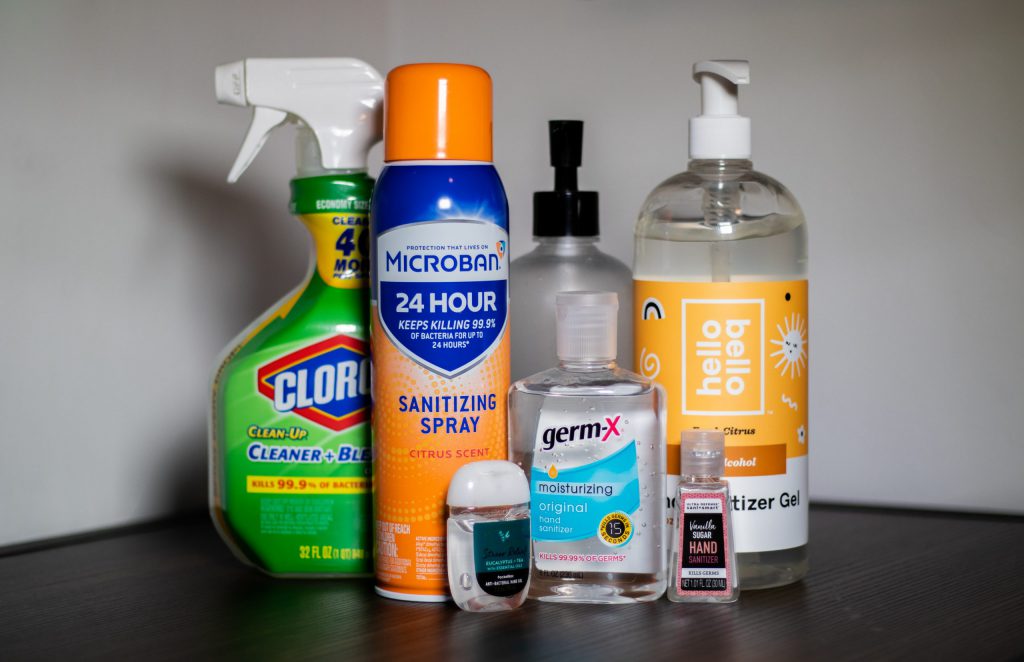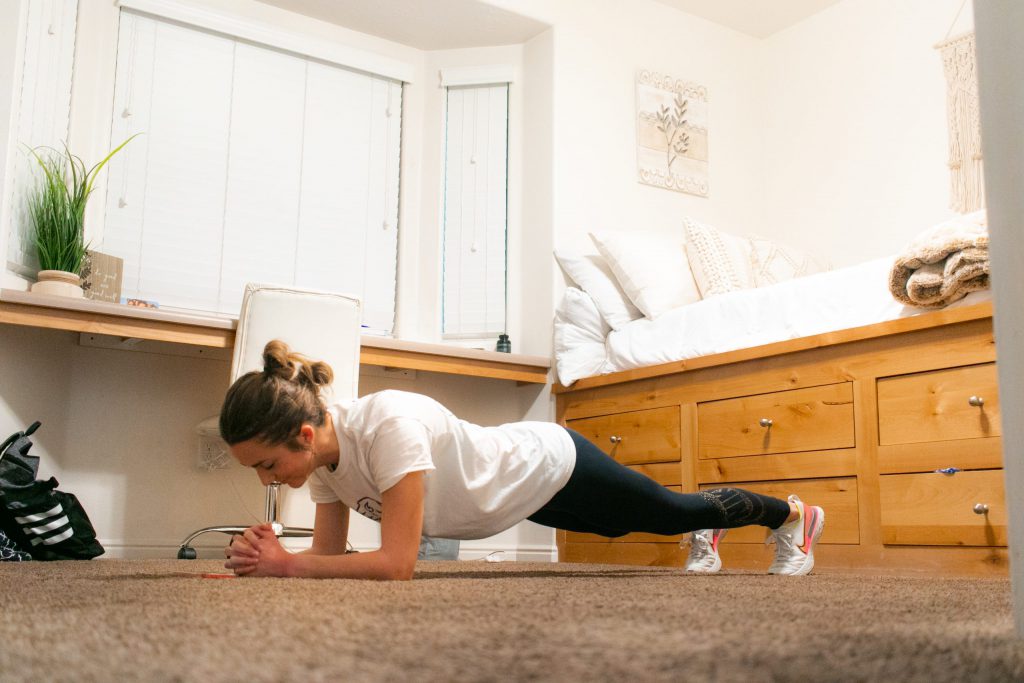Students returning to campus for the fall semester means bringing all their germs back with them.
Sicknesses can spread quickly through campus, especially as students come in close contact with each other in classes. They touch the same door handles, use the same bathrooms and utilize the same workout equipment at the gym, which are quick ways to spread germs.
Here are some ways to avoid getting sick and some tips on what to do if you do get sick.
Be cleanly
Good hand hygiene is a proven method to preventing illness.
Callie Peacock, a registered nurse at the Booth Wellness Center, said hand washing or hand sanitizer is No. 1. and that people should avoid touching their faces.
When you touch things around campus and then touch your face, you are spreading germs, therefore leading to higher chances of you and others getting sick.
Cleaning can also help keep germ spreading to a minimum. Cleanliness is especially important for students with roommates because through living in the same environment, people share germs.
Elizabeth Harding, a sophomore Earth, energy and environmental science major from West Jordan, said in a school setting, she changes sheets once a week or once every two weeks.
During times when sickness seems to be circulating on campus, habits like washing your sheets more can reduce the spreading of germs in your dorm.
Kenadie Meils, a sophomore psychology major from Perris, California, said an extra step she takes is disinfecting everything, especially around flu season.
Be cautious and support your immune system
According to Carla Weaver, the director of medical services and health promotion at the BWC, the upkeep of your immune system would be beneficial to help prevent sickness.
Weaver said they have been seeing an influx of patients who are experiencing upper respiratory symptoms. Weaver listed some immune-supporting behaviors students can implement that include sleeping enough, staying hydrated, finding ways to manage stress and avoiding sugary and processed foods.
By adding healthy habits to your routine, you can lower the risk of getting sick.
When it comes to avoiding sickness, it’s all right to be cautious when it comes to protecting yourself from germs.
Consider wearing a mask. During the COVID-19 pandemic, we all became accustomed to wearing masks, but we no longer wear masks as frequently as we did during that time. Wearing a mask can still protect you from germs.
Use good judgment about whether or not you think a mask is necessary during times when sickness is going around. A student experiencing cold symptoms may also take this precaution in order to still attend class.
Avoid sitting next to people who may be sick, and opt to stay away when people are coughing or sneezing.
Meils said although she does not get sick often, she still stays away from people who are sick, even if it’s just allergies.
Be aware of the people around you and make assessments about your surroundings. If you see a situation where you feel you might be putting yourself at risk of being exposed to sickness, try and avoid it.
Remember sickness is sometimes inevitable
Factors like the time of year and big events on campus can have an effect on the likelihood of illness spreading around campus.
Peacock said the campus goes through periods of illness. She mentioned that the Foam Dance may be a reason for the busyness they have been experiencing at the BWC. For example, one of the nurse practitioners had 20 appointments a day just on her schedule.
Peacock said, “Pretty much if there’s a slot open, it gets filled.”
If you do get sick, knowing what resources are available to you can make a difference in the time it takes for you to get better.
The BWC offers testing for sick students. While the common cold is a virus, which means it is not tested for, COVID-19 tests are still offered at the BWC.
“It’s just nice to know what you have,” Peacock said. “Know what to look for if I get sicker.”
Prolonged illness can mean a bacterial infection. Testing offered at the BWC can also help identify when antibiotics are needed, and the nurse practitioner can then prescribe those.
The BWC also has pamphlets available that outline what students can do when experiencing common symptoms like coughing, a sore throat or a fever.
Communication with your professors is important if you will be missing class due to sickness. A professor may be more willing to help you out if you communicate your situation to them.
“If I’m sick enough to miss class, the first thing I would do is email my professors right away,” Harding said. “If I do that and I’m very upfront, or I give them a doctor’s note, they’re more lenient about like due dates or times.”
Whether or not your professors are willing to cut you a lot of slack when you’re ill, be open with them and ask about what their expectations are for you to make up the time you’ve missed
Getting sick can be stressful. Take time for yourself to heal and prioritize self-care.




